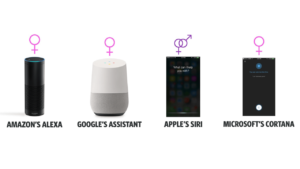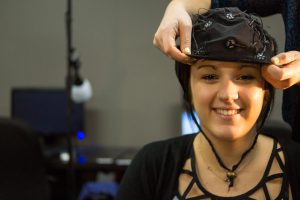 A major study of consumers’ subconscious reactions to digitised voices has revealed a significant bias towards female voices amongst people under the age of 35.
A major study of consumers’ subconscious reactions to digitised voices has revealed a significant bias towards female voices amongst people under the age of 35.
The study, which used brain imaging technology to explore the neurological response to male and female voice assistants, discovered that respondents of both genders within a younger age group found a female voice both more approachable and more compelling than a male one. By contrast, whilst those over 35 found the female voice more approachable, they found the male voice more compelling.
Conducted by neuroscience research firm, Neuro-Insight, in partnership with WPP media agency, Mindshare, the study provides important insights for organisations wishing to use digital audio communications. Audio communication is gaining increasing prominence in our day to day lives with voice assistants such as Alexa, podcasts, audiobooks, music streaming and even voice notes quickly gaining in popularity.
 Analysing the subconscious brain responses of 105 subjects aged between 18 and 65, the research found that subjects of all ages and genders found female voices more approachable, with the ‘approach’ response 32% higher for female voices
Analysing the subconscious brain responses of 105 subjects aged between 18 and 65, the research found that subjects of all ages and genders found female voices more approachable, with the ‘approach’ response 32% higher for female voices
The response to female voices amongst younger respondents was even more pronounced however, with the female voice proving twice (+103%) as approachable as the male voice. Younger respondents also found the female voice more compelling (22% higher across a bundle of metrics) in contrast to older respondents who found the male voice more compelling (25% higher).
Heather Andrew, CEO of Neuro-Insight: “The differences of response that we observed were clear and compelling. Although in the past male voices may have had more authority, as evidenced by older people’s reactions, it’s apparent that this is no longer the case for the younger generation. Brands that understand the true impact of different voices amongst different demographic groups have a powerful potential source of competitive advantage.”
 Jeremy Pounder, Futures Director of Mindshare: “This research confirms the long held belief that people find digital assistants with female voices more approachable. However, it also shows that there is considerable variation in the type of response depending on the age and gender of the consumer. As brands start to engage with consumers through voice interactions, they will need to think about how they adapt the gender and tone of their voice for different consumer groups and purposes.”
Jeremy Pounder, Futures Director of Mindshare: “This research confirms the long held belief that people find digital assistants with female voices more approachable. However, it also shows that there is considerable variation in the type of response depending on the age and gender of the consumer. As brands start to engage with consumers through voice interactions, they will need to think about how they adapt the gender and tone of their voice for different consumer groups and purposes.”
Source: Mindshare

You must be logged in to post a comment Login